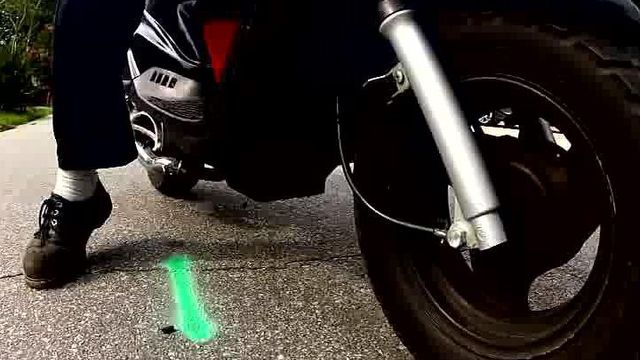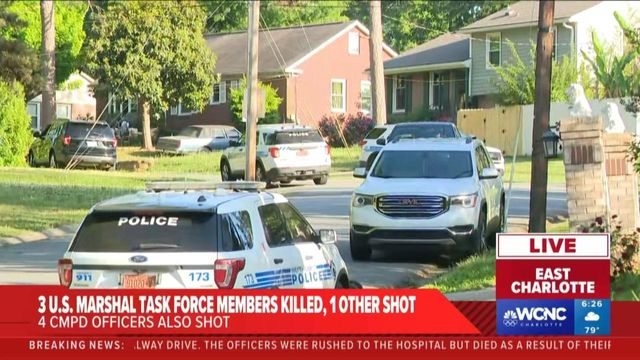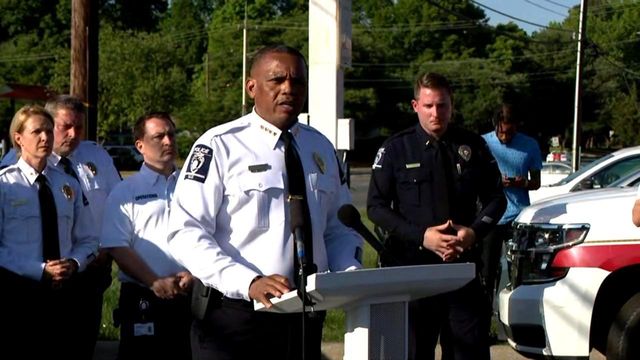Drunken mo-ped drivers dangerous, but could licenses kill industry?
Trauma surgeon Dr. A. Britton Christmas was working early one chilly morning when a drunken mo-ped driver came into the emergency room after a crash. Why was the man driving a mo-ped at 3 a.m. in cold weather, the doctor asked. His license had been revoked. As the doctor soon discovered, this man wasn’t the only drunken driver taking to two wheels, unlicensed.
North Carolina is one of only a handful of states that doesn't require a license, registration and insurance for mo-peds. Most states require at least one of them and, in some cases, allow drivers with a revoked license to get a special mo-ped permit.
Christmas and at least one state senator are hoping to toughen North Carolina's laws to make sure drunken drivers aren’t able to mount mo-peds so easily. But others, especially mo-ped dealers, worry that tougher laws could kill the industry.
In 2010, the latest year for which statistics are available, North Carolina authorities suspected impairment of mo-ped drivers in 10.5 percent of the crashes they were involved in – a rate four times higher than passenger car and SUV drivers and three times higher than pickup drivers, according to statewide crash data.
Mo-ped crashes in the state are on the rise, from 239 in 2001 to 671 in 2010, the data shows. During the same time frame, crashes involving passenger cars, pickups, minivans and bicycles all went down in North Carolina.
Back in the emergency room, the doctor treating the drunken mo-ped driver decided it was time to investigate.
“This kind of prompted us to start looking into these mo-ped operators, because we began to think that most of the mo-ped operators coming in were intoxicated,” said Christmas, an associate professor of surgery at Carolinas Medical Center in Charlotte.
Christmas and his fellow researchers released several reports, including:
- Mo-peds: The legal loophole for repeat driving while intoxicated offenders
- Mo-peds: Motorized objects propelling ethanol drinking subjects
The group researched 65 mo-ped drivers involved in crashes and found that 49 percent had alcohol in their system, 45 percent had a previous driving while impaired charge and 33 percent had multiple DWIs.
Drunken mo-ped drivers arrested, killed
In May, Wake County deputies stopped mo-ped driver Larry Williams on Western Boulevard in Raleigh, near North Carolina State University, and found that he had three misdemeanor DWI convictions on his record since September.
The deputy noted that Williams had slurred speech and stumbled getting off the mo-ped on the side of the road. A breath test revealed he had a 0.22 blood-alcohol content, nearly three times the level at which drivers are considered impaired under North Carolina law, prompting authorities to charge him with felony habitual drunk driving.
Since January 2011, Raleigh police have charged 33 mo-ped drivers with DWI. More than 60 percent of those were repeat offenders, which is higher than the national rate of all repeat offenders. Studies put the re-offending number between 30 and 40 percent.
While those drivers were charged, the outcome can be much worse.
On July 14, 2011, Charles Fairley died after a tractor-trailer hit him while he was illegally riding a mo-ped alongside Interstate 95 in Cumberland County. A state medical examiner determined that his blood-alcohol content was three times the level at which drivers are considered impaired. Fairley had been convicted of DWI eight months earlier, according to court records.
Buck McCoy was driving at night on N.C. Highway 41 in Craven County on Feb. 13 when he hit mo-ped driver Perry McCoy, no relation, from behind. Perry McCoy was drunk and going 20 mph in a 45 mph-zone, troopers said.
Buck McCoy was not charged in the crash, but he and his insurance company had to cover the $3,100 in damage to his car. He believes the law should require mo-ped owners to take more responsibility.
“These mo-peds should have insurance,” Buck McCoy said.
Perry McCoy claims the crash wasn't his fault, but admits that he rides a scooter because he lost his license due to prior DWI convictions.
“(It’s) the only way to get around, really,” he said.
Licensing mo-ped drivers ‘could kill the industry’
Mo-ped dealers say many of their customers are turning to two wheels because of high gas prices, but some dealers also target drunken drivers who lost their license.
State Sen. Ralph Hise, R-Mitchell, said he wants to add a registration and insurance requirement for scooters with engines 50 cubic centimeters or less.
“It’s both a safety and liability issue. When you have someone intoxicated, it doesn’t matter what they’re on. They’re on our highways. They’re a danger to every vehicle, every pedestrian (and) every biker on the highway,” Hise said.
Brandie Brandon, sales manager at Scooterz in Raleigh, says scooters with 50-cc engines are her biggest seller “because you’re allowed to drive them without a license.”
While Brandon says she has no problem with requiring insurance and registration for less powerful mo-peds – “I think it’s an excellent way to keep everybody protected," she said – requiring a driver’s license is another issue. “It could kill the industry,” she said.
For now, mo-peds and those who drive them ride unregulated in North Carolina. In the meantime, Hise and Christmas say they will push for tougher laws.
“I think that they are a legitimate danger on the roads and, to be quite honest, the current mo-ped operating laws are way too lenient for mo-ped operators,” Christmas said. “They pose a significant safety risk, not only to themselves, but to other drivers.”
Read more WRAL Investigates stories or contact the WRAL Investigates team.











